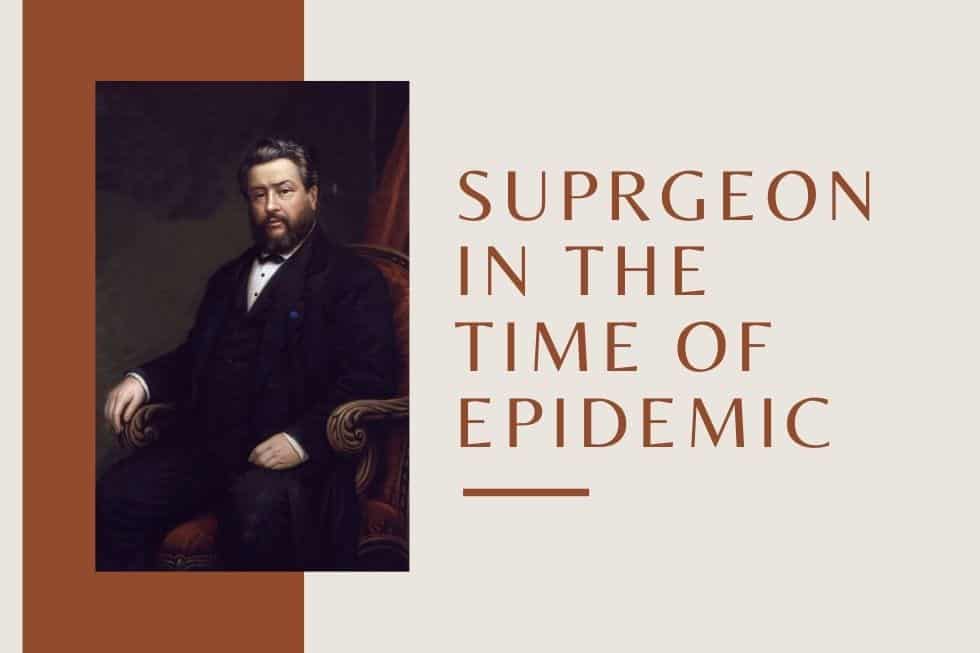Written by Pastor Steve Whitlock
In 1854, London experienced a historic cholera outbreak, claiming the lives of hundreds of people. Charles Spurgeon was just 20 years old, having been a pastor for only a few months. The center of the outbreak was across the river from where Spurgeon pastored, and he was called to care for the sick and dying.
Experiencing a burden for those who were affected, he wrote this, “During that epidemic of cholera, though I had many engagements in the country, I gave them up that I might remain in London to visit the sick and the dying. I felt that it was my duty to be on the spot in such a time of disease and death and sorrow.”
By seeing the value of people – individual people – he was prompted to care for them personally. He didn’t see them as a group to be preached at, but as a community to be cared for, making many home visits during these months.
He saw how crises never leaves people unchanged, as it softens hearts and makes minds sensitive. As a result, God’s voice was heard much clearer with the things of God more readily received. He wrote, “I recollect, when first I came to London, how anxiously people listened to the Gospel, for the cholera was raging terribly. There was little scoffing then.” He goes on to say, “I found we were more gladly listened to when we spoke of Christ and of things divine.”
One of the ways God prepares the soil of the human heart is through trials and suffering. It prepares people who would otherwise not listen and not receive. Let’s be looking for opportunities – divinely directed – where God wants us to speak His words of hope and encouragement because of Christ.
In his care for the sick and hurting, Spurgeon saw God do remarkable things. He witnessed God’s comfort and strength and even joy. Spurgeon said, “I went home, and was soon called away again; that time, to see a young woman. She also was in the last extremity, but it was a fair, fair sight. She was singing—though she knew she was dying—and talking to those round about her, telling her brothers and sisters to follow her to heaven, bidding goodbye to her father, and all the while smiling as if it had been her marriage day. She was happy and blessed.”
Spurgeon never pretended this time was easy. He was honest in saying, “I became weary in body, and sick at heart. My friends seemed falling one by one, and I felt or fancied that I was sickening like those around me. A little more work and weeping would have laid me low among the rest; I felt that my burden was heavier than I could bear, and I was ready to sink under it.” Then he shares how God brought a slip of paper to Him that told of God’s protection, even during a calamity. That seemingly random message made all the difference, bolstering his courage to keep going.
In a charge to his people, which is very relevant for us today, he wrote, “Now is the time for all of you who love souls. You may see men and women more alarmed than they are already, and if they should be, mind that you avail yourselves of the opportunity of doing them good. You have the Balm of Gilead [Christ]; when their wounds smart, pour Him out. You know of Him who died to save; tell them of Him. Lift high the cross before their eyes. Tell them that God became man that man might be lifted to God. Tell them of Calvary and its groans, and cries, and sweat of blood. Tell them of Jesus hanging on the cross to save sinners. Tell them that: ‘There is life for a look at the Crucified One. ‘Tell them that He is able to save even at the eleventh hour, and to say to the dying thief, ‘Today shalt thou be with Me in Paradise.'”
We have our own uncertainty in this crisis. Is God asking you to speak or act? Is He prompting you to share Christ’s love? Trust Him in the moment, be brave with His love and comfort.

